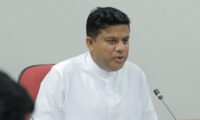In Mexico City on Saturday, thousands took to the streets to voice their concerns about rising crime, corruption, and impunity. The protest organizers – Generation Z youth – managed to attract a broad base of supporters of different ages, including representatives of opposition forces.
This year, volunteers and activists in many countries have emerged from the ranks of those born in the late 1990s or the early 2010s, who are stepping out with demands for justice, transparency, and changes in the system of governance. Gen Z protests are focusing attention on fault lines: economic inequality, restrictions on democratic freedoms, and corruption schemes.
Among the most notable events is the September spread of protests in Nepal after a ban on social networks, which led to political backlash and the resignation of the prime minister. In Mexico, youth have consistently spoken about systemic problems, notably corruption and impunity for crimes against citizens.
Arizbet Garcia, a 43-year-old doctor who joined the protests, shared the view that increased funding for the public health system and overall security are needed, as doctors also face risks in a country where violence is only partially punished.
Mexico’s president Claudia Sheinbaum remains with high approval ratings despite recent high-profile crimes, including the killing of a popular mayor in the western state of Michoacán. In the period preceding Saturday’s march, she repeatedly spoke about the challenges posed by political forces seeking to interfere in the Gen Z movement through bots on social networks to boost turnout.
This week, some Gen Z influencers on social networks announced a pause in supporting Saturday protests, while influential older-generation figures, notably former President Vicente Fox and Mexican billionaire Ricardo Salinas Pliego, spoke out in support of the movement. The Saturday march drew participants of various ages, including supporters of the recently killed Michoacán mayor Carlos Manzo, who arrived wearing straw hats – a symbol of his political movement.
“He was killed because he was a man who sent officers into the mountains to fight criminals. He had the courage to stand up to them,” she said about Manzo.
Context and Next Steps for the Gen Z Movement
The protests in Mexico City have become part of a broader discourse on the need for systemic changes: accountability for crimes, reform of the police, and government accountability. Participants emphasize their readiness to continue speaking out and press the government for real steps toward safety and integrity in public governance.
Despite divergent assessments and differences among groups, the Gen Z protest movement in Mexico shows mobilized support across age groups and the ability to politically activate people from different regions of the country.
Analysts emphasize that events in the capital and in the regions could have a lasting impact on the political landscape, driving new dialogues among the government, civil society, and the youth about the future of governance and security in the country.











Leave a comment